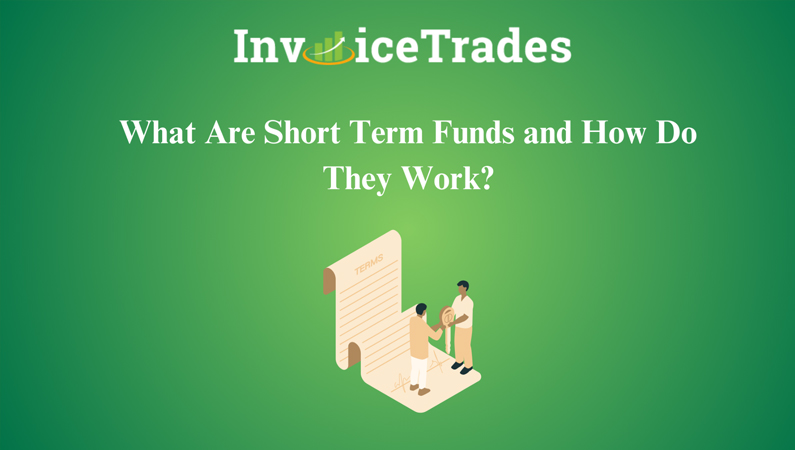Managing finances effectively often involves balancing long-term and short-term investment goals.
While long-term investments are crucial for wealth creation, short-term funds play an essential role in achieving immediate financial goals. Designed for a shorter investment horizon, these funds offer liquidity, stability, and relatively lower risk. This guide explores what short-term funds are, how they work, and why they are vital for any financial portfolio.
1. What Are Short Term Funds?
Short-term funds are investment instruments focused on generating stable returns over a short time frame, typically ranging from one to three years. They primarily invest in low-risk debt securities such as treasury bills, certificates of deposit, and corporate bonds. These funds prioritize capital preservation and liquidity, making them an attractive choice for individuals looking for safe and steady growth over a short period.
2. How Do Short Term Funds Work?
Short-term funds pool money from multiple investors and allocate it to a diversified portfolio of debt instruments. Fund managers carefully select high-quality securities that mature within a short period, ensuring minimal risk. Returns are generated through:
- Interest income: From the debt instruments held in the portfolio.
- Capital appreciation: Due to slight changes in bond prices when interest rates fluctuate. The aim is to balance risk and return while maintaining liquidity for investors.
3. Benefits of Investing in Short Term Funds
Short-term funds offer numerous advantages:
- Liquidity: These funds allow easy redemption, providing access to your money when needed.
- Lower risk: They are less volatile compared to equity investments.
- Stable returns: Ideal for safeguarding wealth during market uncertainty.
- Goal alignment: Perfect for meeting immediate financial goals like vacations or emergency savings.
4. Types of Short Term Funds
Different types of short-term funds cater to varying investor needs:
- Money Market Funds: Focus on highly liquid instruments like treasury bills and commercial papers.
- Ultra-Short Duration Funds: Offer slightly higher returns by investing in debt securities with a marginally longer duration.
- Corporate Bond Funds: Invest in high-quality corporate debt for better returns with moderate risk.
- Treasury Bills and Government Securities Funds: Secure options backed by government guarantees.
5. Key Factors to Consider Before Investing
Before investing in short-term funds, keep these factors in mind:
- Investment Goals: Align your fund selection with your financial objectives.
- Risk Tolerance: Evaluate your comfort level with minimal risk.
- Expense Ratio: Choose funds with lower fees to maximize returns.
- Past Performance: Review the fund’s track record and credit quality of its portfolio.
- Tax Implications: Understand how returns are taxed based on your income slab and the fund's holding period.
6. Risks Associated with Short Term Funds
Although relatively safe, short-term funds are not entirely risk-free:
- Credit Risk: The possibility of a bond issuer defaulting on payments.
- Interest Rate Risk: Fluctuations in interest rates can impact returns.
- Inflation Risk: Real returns may be eroded during periods of high inflation.
7. Who Should Invest in Short Term Funds?
Short-term funds are ideal for:
- Investors with surplus cash looking for better returns than savings accounts.
- Those saving for short-term goals such as weddings, vacations, or emergency funds.
- Risk-averse individuals seeking a stable and liquid investment option.
8. Comparing Short Term Funds with Other Investment Options
- Short-Term Funds vs. Fixed Deposits: While fixed deposits offer fixed returns, short-term funds can potentially provide higher returns with added liquidity.
- Short-Term Funds vs. Savings Accounts: Short-term funds generally deliver better returns than traditional savings accounts.
- Short-Term Funds vs. Long-Term Investments: Unlike long-term investments, short-term funds prioritize safety and liquidity over high returns.
9. Conclusion
Short-term funds are an essential tool in any investor's portfolio, providing a balance of safety, liquidity, and returns. They cater to individuals with immediate financial needs, offering a flexible and low-risk solution for short-term goals. However, it's crucial to assess your financial objectives, risk tolerance, and investment timeline before choosing a short-term fund.
